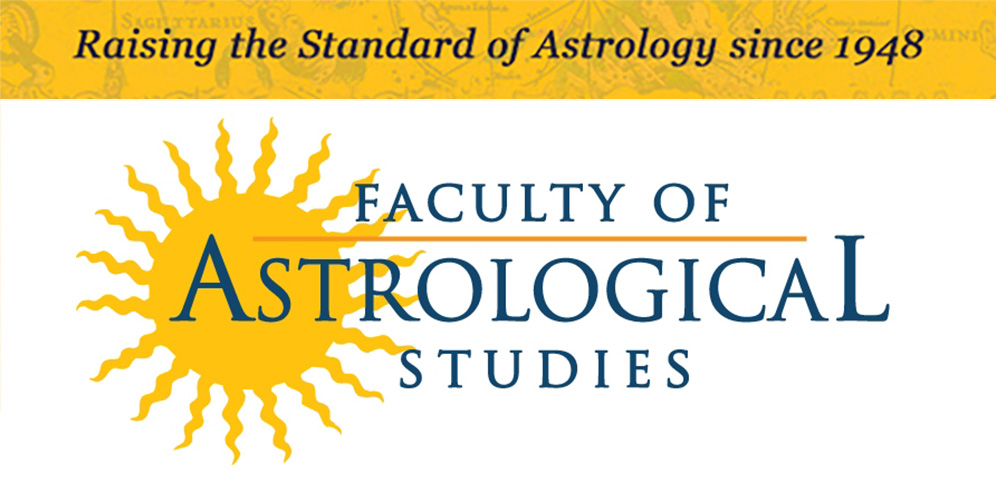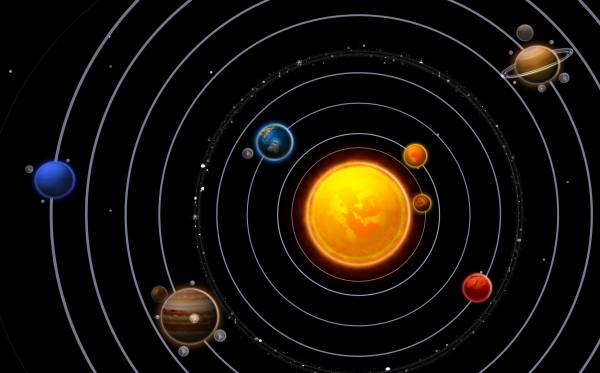
Image courtesy Caltiva Creatividad
Looking at 6 myths/misunderstandings about astrology!
Astrology tends to be treated or tolerated mostly as entertainment. Astrologers themselves, not all of course, have aided and abetted this ‘only for entertainment’ development by writing star sign astrology in the first place. It’s a bit of a catch 22 situation though for in a general climate where few of us take astrology seriously, writing star sign stuff helps to pay the bills – while correspondingly this participation helps to maintain the perception that it is only for entertainment – and so it’s a bit of a vicious cycle. I hasten to add I don’t do a column for anyone but then I have considered it as I have bills too.
‘If one were to bring ten of the wisest men in the world together and ask them what was the most stupid thing in existence, they would not be able to discover anything so stupid as astrology.’ David Hilbert, German mathematician
If that was the outcome David I would have some difficulty with your definition of wisdom – I’d also want to know what the ten wisest women might say on the matter.
I also know only too well the resistance one can meet in seeking to discuss astrology in any serious way. I recall many exchanges…
One comes to mind right now: I was in a hotel bar, serving drinks to a group of locals in the Cotswold town of Northleach (UK). Their discussion had gone onto ‘star signs’ and how could anyone take it seriously. I chirped in saying that I agreed, that splitting people into twelve groups was too generalised, and how it should be done properly. At that point they realised that they had already found their ‘anyone’ daft enough to take it seriously, and they soon began challenging me from all quarters. I recall so vividly after the onslaught – well they had had a few drinks – one person turning and saying in confidence to me, ‘Oh you don’t believe in that rubbish do you? I always had you down as being more intelligent than that‘. Yes, well, I bit my lip!
He next chirped in with, ‘Go on then, tell me what my sign is!‘ There’s nothing quite like a topic one has devoted much of one’s life to taking interest in, being reduced to a parlour game. Oh well, in for a penny… I looked at him for a moment and took a stab, ‘Cancer‘ I said. ‘You’re right’, he said, ‘How did you know that?’ ‘More to the point’, I said, ‘how did you, with all your intelligence, bother to know your sign was Cancer!?’ Touché! he replied. We laughed and let the matter rest. It was obvious to me however that he was interested yet couldn’t admit his interest for the likelihood of being ridiculed for not quite playing with a full deck.
Not surprisingly I have tended to keep such interests under wraps unless I feel I can open up. I mean, What, you’re talking to me, you had me down as being ‘more intelligent than that’!? Sometimes in the past I could swear I heard a cock crow as I was being very economical with the truth of my unacceptable fringe beliefs. As I’ve gotten older I care less what anyone thinks. After years of experience here’s the mantra that suits me now – Better to live by your own truth than maintaining the pigeon hole someone else has placed you in.
Onto Part 2
What I want to do in this part is address some of the misunderstandings of how astrology works. Over the years I have come across many opinions and, I have to say, huge misconceptions of what astrology is all about. So let’s address some of these to clear the air a bit.
1. Astrology is a mediaeval superstition, or alternatively, it’s a hangover of the 1960s’ hippy movement
Mediaeval superstition: My take on this is that it is linked to the view that astrology stopped having any value back in mediaeval times resulting from the discoveries of science – and particularly Nicolaus Copernicus uncovering his heliocentric system (of the Earth travelling around the Sun) replacing the old system of the Earth being at the centre of the universe.
Astrology after all could be viewed as resting on the foundations of the old geocentric astronomy and so was fair game. If we add to the mix the growth of the mechanistic view of life – in effect removing the need for a God or gods from the life equation – and our increasing direction of travel being towards secularism, then all sure helped to put a spanner in the works of any belief in the divine and with it astrology.
But, from an application viewpoint, the changes brought on by Copernicus, didn’t require any radical change in the use of astrology. Astrology works just as well either way – Sun going around the Earth or vice versa. The Sun is today still treated as a planet in the zodiac. It still appears to be travelling through the zodiac signs over the year even though we now know it is the Earth that is moving and giving a different perspective on the Sun. Nothing intrinsic has changed in the mechanics.
Product of the hippies: Certainly interest in astrology in America and Europe was renewed during the latter half of the twentieth century – I’d suggest peaking in the 1960s through to 1990s, and now given further thrust via being online. One can link this with a resurgence of interest in holistic, new age and esoteric philosophies – many Eastern in origin – and the hippy movement of the time. But astrology is much, much older…
Astrology, as old as the hills: Astrology is many thousands of years old. It is believed to have begun around the 3rd to 2nd Millennium BC that we know of – 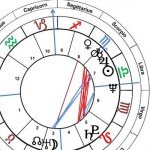 in Babylonia/Mesopotamia – although roots regarding possible recordings of the Moon phases might suggest beginnings lie many thousands of years earlier – perhaps even back to Mesolithic times in very rudimentary form. Notably too it developed and has been used across almost every settled culture – across Europe, the Middle East, India, Tibet, China, and South America for example. Also that across the world there developed a number of different approaches to astrology, having obvious similarities and also variations on the theme of predicting by use of the stars.
in Babylonia/Mesopotamia – although roots regarding possible recordings of the Moon phases might suggest beginnings lie many thousands of years earlier – perhaps even back to Mesolithic times in very rudimentary form. Notably too it developed and has been used across almost every settled culture – across Europe, the Middle East, India, Tibet, China, and South America for example. Also that across the world there developed a number of different approaches to astrology, having obvious similarities and also variations on the theme of predicting by use of the stars.
The astrology in use by most of us in the west today is argued to have its beginnings in the neo-Babylonian period, around 7th to 6th century BC and then was adopted and developed by the ancient Greeks.
2. It’s all in the stars!
No this is not quite correct – certainly not for most of us reading our stars in the papers. Most Western astrology is based upon the tropical zodiac and only involves one star, the Sun. The so-called ‘fixed stars’ or constellations don’t feature. I’ll say more on the tropical zodiac below…
3. Astrology is fatalistic and takes away our freedom of choice
This is rubbish with a capital R. Astrology offers the opposite. It opens doors to our potential and possibilities. It can give us back our freedom by providing insight into what makes us tick, what we are dealing
with, what we are drawing towards us, and point the best way of handling that. Our birthchart gives us our symbolical situation on coming into the world. It is down to us, our will, our soul, how we make best use of this and take it forward.
4. Astrology can’t work as it doesn’t even line up with the star constellations of the zodiac belt
Most practicing astrologers will know there are two zodiacs in common use today – the sidereal and tropical – and therefore two templates to consider:
Sidereal Zodiac: The sidereal zodiac, used mainly in Hindu or Vedic astrology, draws on the star constellations that lie in the zodiac belt. This is the plane of the ecliptic, the path the Earth takes around the Sun and in which plane the whole solar system also lies. This is the most ancient approach to casting birthcharts.
Tropical Zodiac: The tropical zodiac is used mainly in western astrology. This zodiac is deemed to begin at the spring equinox (in the northern hemisphere where the Sun crosses the equator heading north) within the start of the sign of Aries – around the 21st March. The yearly cycle is then split into 30 degree segments, each representing a zodiac sign.
Whereas the sidereal zodiac relates to the Sun’s apparent path against the background stars – up there in the gods – the tropical zodiac is the ongoing cycle and relationship between the Sun and the Earth – and says more about us down here on terra firma.
How these two zodiacs emerged
When astrology was becoming established in the form as we know it today, it drew on the twelve constellations lying within the ecliptic belt – with each constellation covering 30 degrees of the 360 degree circle. The beginning of the constellation of Aries (first point of Aries) was established as the starting point for the cycle. This is the point where the celestial equator meets the ecliptic – and so tied in with the spring equinox. All well and good back then – well not quite as there were differences of opinion as to what star constituted the first point of Aries. The star Alpha Arietis, at the eastern extreme of Aries, was eventually chosen as marking the spot – but anyhow let’s keep this as simple as possible as I have to understand it as well.
Some time later, quite a long time actually, it was discovered that the spring equinox was no longer coinciding with Alpha Arietis but was indeed occurring a little earlier each year and had slipped backwards into the constellation of Pisces (1). This backward motion of the equinox against the background stars, is called the Precession of the Equinoxes and well known in astrology and astronomy. It is caused by the Earth doing a bit of a wobble at the poles as it turns like a spinning top. Precession was arguably known to the Egyptians but in a literal sense we learnt about it through the Greek astronomer, Hipparchus (circa 130 BC) who is credited with discovering it. This knowledge was carried through to us by Claudius Ptolemy’s astronomical book, The Almagest (circa 100 AD).
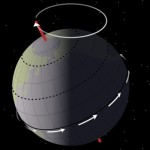
As an aside, it beggars belief that on discovering ‘precession’ those old Greeks didn’t anticipate the Earth was also moving, if even ever so slightly, and that it wasn’t as fixed at the centre of the universe as people like Aristotle went around claiming. Well arguably they did know – as a remarkable Greek astronomer, called Aristarcus (310–c. 230 BC), some seventeen hundred years before Copernicus got his mitts on the idea, proposed the Earth went around the Sun – and note even earlier another Greek, Heraclides Ponticus (387–312 BC) proposed the Earth rotates on its axis – rather than the stars moving around us. These were earthling stars in their own time.
To accommodate this shift, astrologers, following Hipparchus, began using the tropical zodiac. It is purely symbolical, removed from having anything to do with the star constellations and relies on the Sun-Earth relationship instead. So when we look for our ‘star signs’ in the local paper, the dates given for each sign are based on the tropical zodiac – what 30 degree segment the Sun is in.
I might add that not all western astrologers are using the same system. Some astrologers will plot and include important stars into a given birthchart while using the tropical zodiac. Others draw up birthcharts using the sidereal system – which means in practice making calculated adjustment for each of the signs by near as damn it 24 degrees (2) – so for example when the Sun is at 25 degrees in Libra tropical sign it will be at 1 degree in Libra sidereal sign.
There is argument that both systems work and it is a matter of getting familiar with the respective system and interpretation. Personally I use the tropical system, like most astrologers I know, and it works for me. Conjecture on my part, but could there be grounds for considering the sidereal system – being with the stars and closer to the gods – provides us with a more spiritual or esoteric prism than the tropical system? If you disagree, fine, let’s not lose sleep over it.
5. There are 13 constellations in the zodiac belt so how can astrology have ever been accurate using 12?
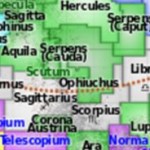
Leaving aside comments above about the tropical zodiac, which more or less makes this argument redundant – for those of us using that zodiac that is – let me say there are indeed thirteen constellations lying within the plane of the ecliptic or zodiac belt. The thirteenth is Ophiuchus (the serpent bearer – formerly known as Serpentarius). It lies between the constellations of Scorpius and Sagittarius – see map.
Astrologer Walter Berg makes an argument for using a 13 sign zodiac and wrote a book on the topic (3). Berg follows the the IAU’s (International Astronomical Union) official constellation boundaries defined in 1930, creating a 13-sign system – each of unequal length.
As one might expect, he uses sidereal astrology with the IAU’s standards. Clearly he also subscribes to direct influences to explain how astrology works. On the page about him on Wikipedia the following explanation is given:
Berg argues that the movement of stars, planets, comets and asteroids through space affects the solar magnetic field; this in turn affects the geomagnetic field influencing collective and individual electro/chemical/ biological systems. Human bio-resonant systems are able to tune into particular astro-resonant cycles. I take a different view of the whole matter of what influences what – see 6. below.
But regards Ophiuchus, or a 13th constellation, ever being included in the zodiac, it is highly unlikely for reasons that:
- Demarcation between constellations may be clear by agreed IAU standards but it is not at all so clear to the eye – which is what the ancients relied on – and it is very
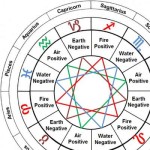 easy to see how Sagittarius could follow the constellation Scorpius. While evidently Ophiuchus does cross the ecliptic, Scorpius in full occupies the same space as Ophiuchus along the ecliptic (in effect it wraps around Ophiuchus for that delineation).
easy to see how Sagittarius could follow the constellation Scorpius. While evidently Ophiuchus does cross the ecliptic, Scorpius in full occupies the same space as Ophiuchus along the ecliptic (in effect it wraps around Ophiuchus for that delineation).
- The most important reason from my perspective was/is due to the need for ease of further division. The division into twelve constellations being built on A. 36 units of 10 degrees or decans, B. these being easily divided into the Polarities of 6 positive and 6 negative signs, C. or into the ancient Triplicities, that is the 4 elements of Fire, Earth, Air and Water – being represented by 3 signs each – and, D. their corresponding Quadruplicities of cardinal, fixed and mutable qualities, represented in 4 signs each. For all of this to hang together you need 12 signs – and certainly not a prime number.
If it is anything, the zodiac/astrology is an elegant integrated system that allows for simple divisions of the circle and ease of observing the flow and tensions in planetary relationships.
6. There’s no way that planets millions of miles from us can affect our behaviour
You know what – I agree with this one! This is of course a common complaint by sceptics, and can also be an obstacle for many thinking people who would like to believe there is something in astrology.
Astrology is an acausal time template
That’s a bit of a mouthful. Let me kick this off by saying that astrology is all a matter of timing, cycles and correlation – and importantly involving meaning or the glue that holds it all together. Yes it is that concept ‘meaning’ again. If you don’t get it, then it is a bit like a joke – there being nothing much gained in trying to explain it.
The simplest explanation for how astrology works is (paraphrasing Carl Jung) that whatever is born or done at this particular moment of time has the quality of this moment of time.
The astrological template incorporating the signs, houses and solar system offers a reliable means of:
- both observing and measuring changes in context with time – we know where the planets will be in relation to each other and the zodiac at any given moment in the past and in the future – and
- following this the opportunity for a given moment of Earth time and location to be given symbolic representation/structure, and importantly interpretation.
My argument is that astrology is acausal – and I’m sure lots of astrologers reading this will agree. The planets don’t need to cause a blessed thing for it to work. Now I would not be alone in accepting that in the dynamics of our solar system there are direct magnetic and gravitational effects resulting from the interplay between planets, and between the planets and Sun and Moon – certainly the Sun and Moon have direct effect on our planet and life – but, and here’s the thing, for astrology to work it does not depend upon any such direct measurable effects. It is simply needs to capture the moment of time and give it symbolical representation/structure – how fabulous is that!?
Now over the centuries of continued observation and let’s say not a little use of human intuition and experience, correlations have, and are, being made between the changes taking place in the solar system and interpretation of those changes – with the outcome that a moment in time can therefore be interpreted with good reliability. It also matters little whether it is the birth of a person or the launch of a ship that is being pinned onto the template as, being symbolical, the birthcharts could look the same as each other – if they coincided to be born at the same time and place – but the interpretation will be given different emphasis for the two very different events.
If you stand back and consider it you’ll see that astrology is quite a remarkable piece of human insight and invention – only conscious beings could make such meaningful sense of their world. And this is why I believe astrology will never be put out to grass as some outdated mediaeval superstition. It is part and parcel tied into the evolution of consciousness and spiritual understanding.
Final comments on this…
I’ll be the first to say astrology is still a bit rough around the edges and incomplete as it stands today. Ability to use it as a tool can vary from astrologer to astrologer as each will use it in context with their own life experience and intuition when giving a reading.
Enormous strides have been made to teach and use it better and make it more accurate through systems such as ‘Midpoints’ and ‘Harmonics’ – and indeed through some excellent software. There is still much room for development and research, and especially in context with enlightening our spiritual journey and needs.
And I’ll bet this... that something of similar nature to astrology will be invented on any planet where conscious life is emerging – anywhere in the universe – you just need to build the time template around the local solar system or use something as big, reliable and predictable as a solar system.
Anyhow I hope you found the info and comments above of interest. I’d welcome your feedback and thoughts on this article, and astrology in general.
1 By the way when this point moves backwards into the constellation of Aquarius we will have the beginning of the much spoken of ‘Age of Aquarius’ – hence we are currently in the Age of Pisces – often spoken of as manifesting through the sign of the fishes, links with the Christ and Christianity, and the growth of all main stream religions. The Age of Aquarius could take another 600 years before it comes to pass. 
2 Fagan, C (1973) Astrological Origins. Llewellyn Publications
3 Berg, W (1995) The 13 Signs on the Zodiac. Harper Collins
Francis O’Neill has been involved with the study and application of astrology for over 35 years. He has diplomas with the Faculty of Astrological Studies and the Mayo School of Astrology. He is particularly interested in the ‘roadmap’ use of astrology for better understanding and applying our spiritual journey, and which he includes in his forthcoming book: Life and Death: Making Sense of It.

